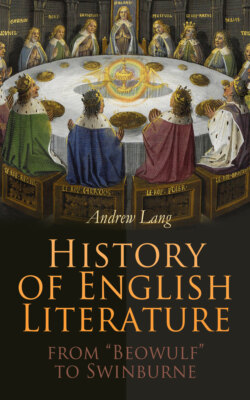Читать книгу History of English Literature from "Beowulf" to Swinburne - Andrew Lang, Robert Kirk - Страница 33
На сайте Литреса книга снята с продажи.
Changes Since the Conquest.
ОглавлениеIt is plain that, within a century from the battle of Hastings, new influences of many kinds were working in England, and changing the national character and intellect. There was the learning from Paris University, and from the Continent in general; there was the clearer intellect and energy of the Normans; the vivacity of such Welshmen or men from the Welsh marches as Geoffrey of Monmouth, Gerald, and Map. Anglo-Saxon literature had never been vivacious.
There were the new topics, "the matter of Britain," the Celtic legends of Arthur, whether derived from Wales or from Brittany—matter most romantic, and suited to the coming poets who, unlike the Anglo-Saxons, were to glorify love. There was, too, the constant excitement and variety that came from travel, whether in the Crusades, in pilgrimages, or to France and Rome on public or private business, or in search of books and teachers. In various ways knowledge of Saracen science and learning, translations of Aristotle from the Arabic into the Latin, and romantic ideas derived from the fables and tales of far-off India, filtered into England.
These things were for priests and book-loving lords and courtiers. Their wits were sharpened by knowledge of several tongues. All educated men knew Latin; "all men of this land," said Robert of Gloucester (about 1270) "who are of Norman blood, hold to French, and low men hold to English," but high men of English blood would talk in English to their farmers and servants. All who learned Latin learned it through French books, but country priests would preach in English.
The Anglo-Saxon language and grammar were slowly changing, though very few new words from French or Latin had yet come into common use. Cow, sheep, calf, and swine were Anglo-Saxon words, as Gurth the swineherd says in "Ivanhoe". Englishmen herded the animals, but the meat of them was called by French names derived from Latin, like beef, mutton, veal, and pork. From the Conquest (1066) to 1200, learning, Latin, and knowledge of French books would filter slowly into the native English mind, partly through sermons; and rich Franklins, and Englishmen in the service of the conquering race, and English priests would be Anglicizing French words.
